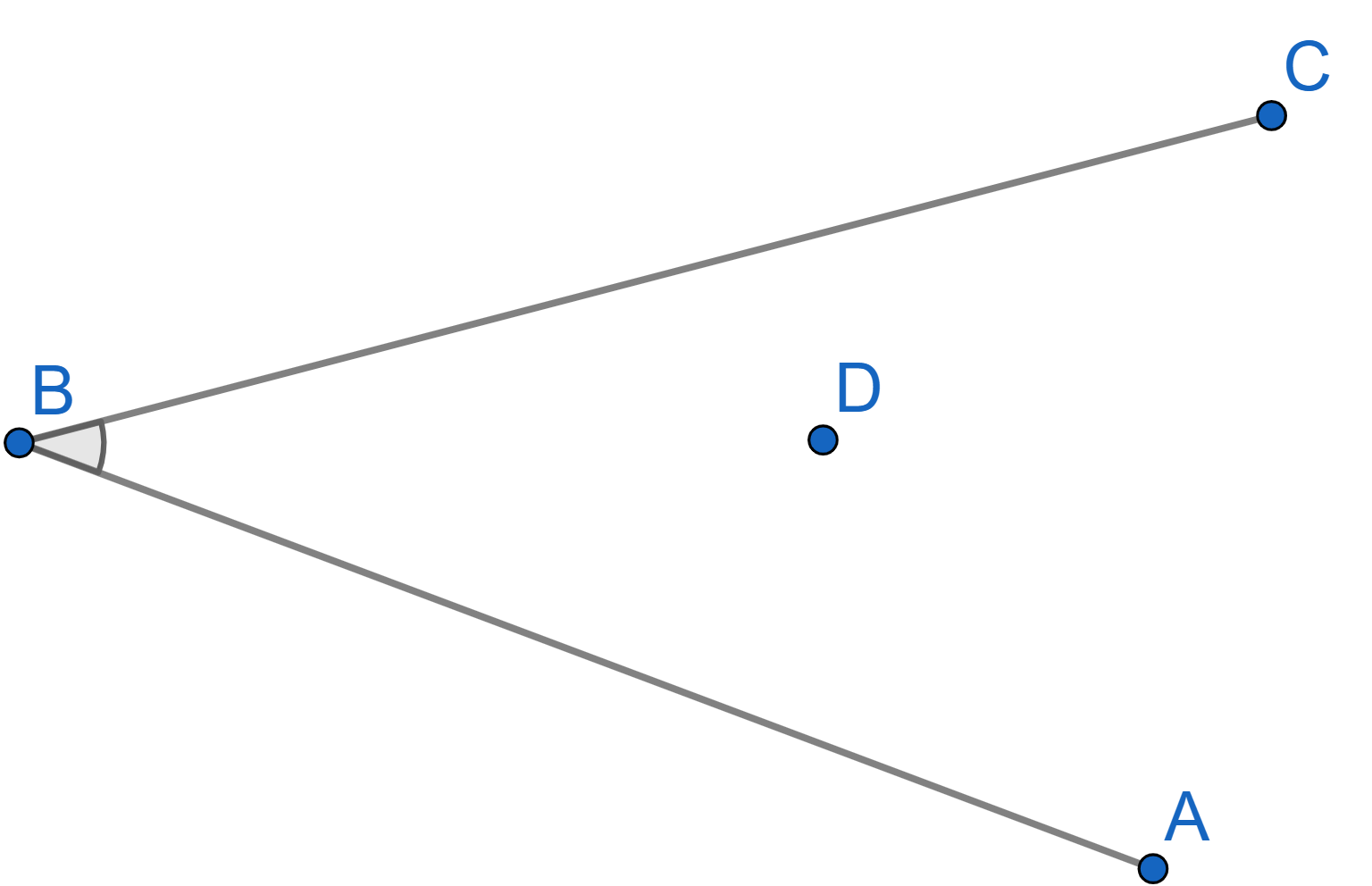Problems
A polygon is called convex if every interior angle is less than \(180^\circ\), i.e: the shape doesn’t “bulge inwards". Show that if a quadrilateral \(ABCD\) has a convex quadrilateral \(EFGH\) situated completely inside it, then the perimeter of \(ABCD\) is greater than the perimeter of \(EFGH\). You might want to remind yourself of the triangle inequality: in any triangle \(DEF\), the side \(DE\) is always shorter than going around the other two sides, so \(DE < DF + FE\).
A billiard ball lies on a table in the shape of an acute angle. How
should you hit the ball so that it returns to its starting location
after hitting each of the two banks once? Is it always possible to do
so?
(When the ball hits the bank, it bounces. The way it bounces is
determined by the shortest path rule – if it begins at some point \(D\) and ends at some point \(D'\) after bouncing, the path it takes
is the shortest possible path that includes the bounce.)

There are \(n\) mines and \(n\) cities scattered across the land, it is known that no three objects (mines, or cities) belong to one line. Every mine has to have a rail connection to exactly one city. Railways have to be straight and cannot cross other railways. Is it always possible?
Can you cover a \(10 \times 10\) board using only \(T\)-shaped tetraminoes?
A broken calculator can only do several operations: multiply by 2, divide by 2, multiply by 3, divide by 3, multiply by 5, and divide by 5. Using this calculator any number of times, could you start with the number 12 and end up with 49?
Can you cover a \(10 \times 10\) square with \(1 \times 4\) rectangles?
Two opposite corners were removed from an \(8 \times 8\) chessboard. Can you cover this chessboard with \(1 \times 2\) rectangular blocks?
The numbers 1 through 12 are written on a board. You can erase any two of these numbers (call them \(a\) and \(b\)) and replace them with the number \(a+b-1\). After 11 such operations, there will be just one number left. What could this number be?
If a magician puts 1 dove into his hat, he pulls out 2 rabbits and 2 flowers from it. If the magician puts 1 rabbit in, he pulls out 2 flowers and 2 doves. If he puts 1 flower in, he pulls out 1 rabbit and 3 doves. The magician starts with 1 rabbit. Could he end up with the same number of rabbits, doves, and flowers after performing his hat trick several times?
One small square of a \(10 \times 10\) square was removed. Can you cover the rest of it with 3-square \(L\)-shaped blocks?